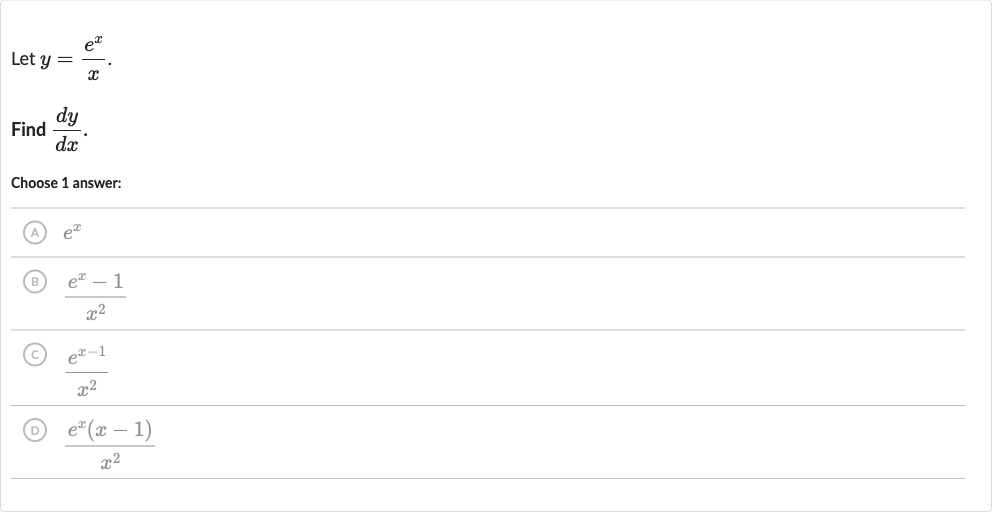AI tutor
Full solution
Q. Let .Find .Choose answer:(A) (B) (C) (D)
- Apply Quotient Rule: To find the derivative of the function , we will use the quotient rule, which states that if you have a function that is the quotient of two functions, , then its derivative is given by .
- Find and : Let and . We need to find the derivatives of and . The derivative of with respect to is , since the derivative of is . The derivative of with respect to is , since the derivative of with respect to is .
- Use Quotient Rule: Now we apply the quotient rule: . Substituting , , , and into this formula, we get .
- Simplify Expression: Simplify the expression: . We can factor out from the numerator to get .
- Final Derivative: The final simplified derivative of the function is . This corresponds to answer choice (D).

